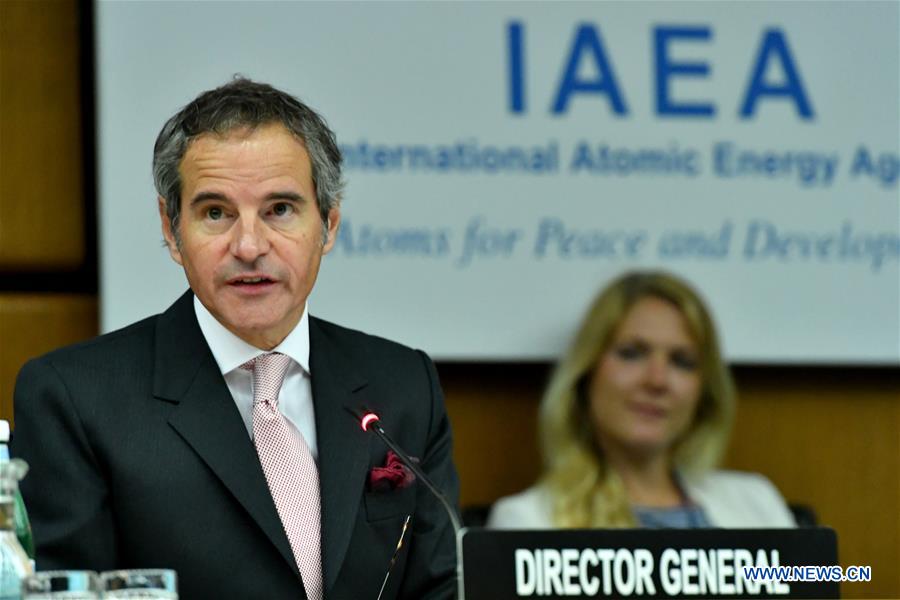
Rafael Mariano Grossi, director general of the International Atomic Energy Agency (IAEA), speaks at the board of governors online meeting in Vienna, Austria, June 15, 2020. The chief of the IAEA on Monday announced the launch of a global initiative using nuclear and nuclear-derived techniques to make the world better prepared for future outbreaks of diseases crossing from animals to humans. (Dean Calma/IAEA/Handout via Xinhua)
VIENNA, June 15 (Xinhua) -- The chief of the International Atomic Energy Agency (IAEA) on Monday announced the launch of a global initiative using nuclear and nuclear-derived techniques to make the world better prepared for future outbreaks of diseases crossing from animals to humans.
Based on the technical, scientific and laboratory capacity of the IAEA and its partners, the Zoonotic Disease Integrated Action (ZODIAC) project will establish a global network of national diagnostic laboratories that can conduct coordinated monitoring, surveillance, early detection and control of emerging and re-emerging zoonotic diseases such as COVID-19, Ebola, avian influenza and Zika, IAEA Director General Rafael Mariano Grossi told an online meeting of the board of governors.
Zoonotic diseases are caused by bacteria, parasites, fungi or viruses that originate in animals and can be transmitted to humans, according to the IAEA. Many of these diseases are treatable if medication is available, such as E. coli and brucellosis. But others have the potential to severely affect humans, such as Ebola, SARS and COVID-19.
The director general pointed out that COVID-19 had exposed problems related to virus detection capabilities in many countries, as well as a need for better communication between health institutions around the world.
While the IAEA has been doing important work to help countries in these areas, such as through the provision of COVID-19 tests, Grossi said it was "essential to pull these diverse strands together into a coherent and comprehensive framework of assistance."
The new initiative will allow member states to have access to equipment, technology packages, expertise, guidance and training, and decision-makers will receive up-to-date, user-friendly information so that they can act quickly, he added.



